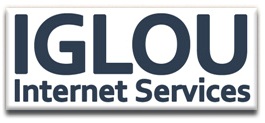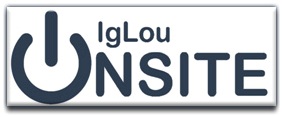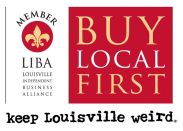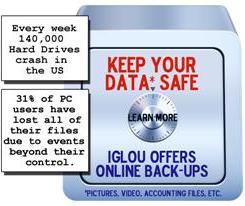Why local businesses are worried about net neutrality and Thursday’s FCC vote
Why Louisville businesses are worried about net neutrality and the Federal Communications Commission vote on Thursday – Louisville – Louisville Business First
The Federal Communications Commission is expected to approve a proposal on Thursday that will regulate the Internet. Known as net neutrality, it has become a confusing and divisive subject, one that elicits different responses depending on who is asked.
Some local businesses and Internet service providers are worried because it’s unclear how heavy-handed the FCC’s decision will be.
“We do think (net neutrality) is a good idea, but there is always the law of unintended consequences,” said Dean Brooks, general manager of IgLou Internet Services Inc., a Louisville-based Internet, hosting and computer-networking services provider.
At its core, net neutrality means an open Internet that bans “fast lanes” accessible only to deep-pocketed companies. Proponents argue that net neutrality is essential for competition among businesses, particularly Internet-based startups with products that operate on and succeed by the speed of its Internet service. Net neutrality would make certain that incumbent telephone and cable companies could not discriminate by blocking or throttling (slowing Internet speeds) a certain website.
It’s widely expected that the FCC will vote Thursday to reclassify consumer Internet service as a public utility under Title II of the federal telecommunication law. Some of the regulations applied to telephone service would thus apply to the Internet, which previously has been classified as an information service.
But throw in the interests of incumbent cable telephone companies, presidential political pleas and an independent, politically charged regulatory agency, the subject becomes complicated.
“What the ramifications of that are going to be is difficult to say,” Brooks said. “I don’t think anybody knows what it means yet.”
If the FCC takes a “light-touch” approach, he doesn’t expect IgLou to be affected. But too many regulations could prevent the company from selling Internet services.
If the FCC decision involves fees and fines, “it would actually remove competition,” Brooks said. This is because smaller ISPs would not be able to afford the fees or fines that are meant for multibillion-dollar companies. “This is a family-owned business. We do well, but there’s a limit to whether or not we would stay in business.”
IgLou employs about 12 people and generates revenue of $2 million to $5 million a year, he said. The company does not rely solely on its Internet services business; it also offers IT consulting, email and web-hosting, computer repair and other in-home services. Brooks said these have been added in case one day the company no longer could sell broadband service.
Brooks called net neutrality a “band aid” for a larger problem: lack of competition among Internet providers.
In the Louisville area, residential customers can choose between AT&T U-Verse and Time Warner Cable for Internet service, for example.
“You really, by and large, don’t have any other practical choices if you want to get Internet to your house,” said Norman Schippert, CEO of regional Internet services provider BluegrassNet. “That’s the way it is, and that’s the way it is in most of America.”
Like many, Schippert is skeptical about the FCC’s proposal because nobody has been allowed to review it. He said a net neutrality law “could potentially be a huge disaster for everybody.” He’s concerned about additional reporting requirements that his business might have to meet.
And, as Brooks said, regulation could mean taxes and fees applied to Internet service, which ultimately would be passed down to the consumer, Schippert said.
There is quite a debate over whether the FCC’s ruling implies taxation.
A recent study published by personal-finance site NerdWallet estimates that American taxpayers would pay $6.25 billion in additional taxes if the Internet is regulated as a public utility.
As for Kentucky, state taxpayers can expect about $100 million in taxes, which amounts to about $86 more per year per household. (Internet costs were averaged based on Owensboro, which is Kentucky’s most expensive city for Internet service.) NerdWallet economics writer Kamran Rosen said in a phone interview that the amount consumers can expect to pay fluctuates, depending on where they live.
Other reports say consumers could pay $11 billion to 15 billion a year, according to a report in The New York Times. But it also reports that FCC staff has said the commission cannot “raise taxes or fees.”
Jeff Biggs, vice president of operations and technology at Peak 10 Inc. in Louisville, thinks the FCC has too many regulations already. Peak 10, a North Carolina-based IT infrastructure provider, employs more than 400 people at its 26 data centers in 10 markets, including Louisville.
“What happens is the FCC turns a blind eye on consumers that legitimately complain” about their Internet service providers, he said. He’d rather see the commission deal with network congestion. He specifically pointed to a dispute last May, when Level 3 Communications Inc., a global Internet service provider, blamed Comcast and other ISPs of purposefully slowing Internet speeds because they would not upgrade their infrastructure.
“This is a simple data-tracking problem. If your network is congested, please go fix your network. That’s what I do, and that’s how I keep my customers happy.”
For additional reading:
- Earlier this month, FCC chairman Tom Wheeler discussed how the FCC planned to “ensure net neutrality” in a Wired column.
- AT&T Kentucky directed Business First to its official statement on the net neutrality proposal here.
- Fortune’s editor published an article this week about the “voice of business” in the net neutrality debate.
- This CNET article thoroughly explains net neutrality, the FCC proposal and the inside-baseball dealings of the Internet.
- And lastly, in the now infamous John Oliver segment last summer, watch Oliver discuss the problem with the FCC and the net neutrality debate.
Rachel Aretakis covers technology, media and entrepreneurism, and she coordinates Louisville Business First’s social media.
Article found here.





